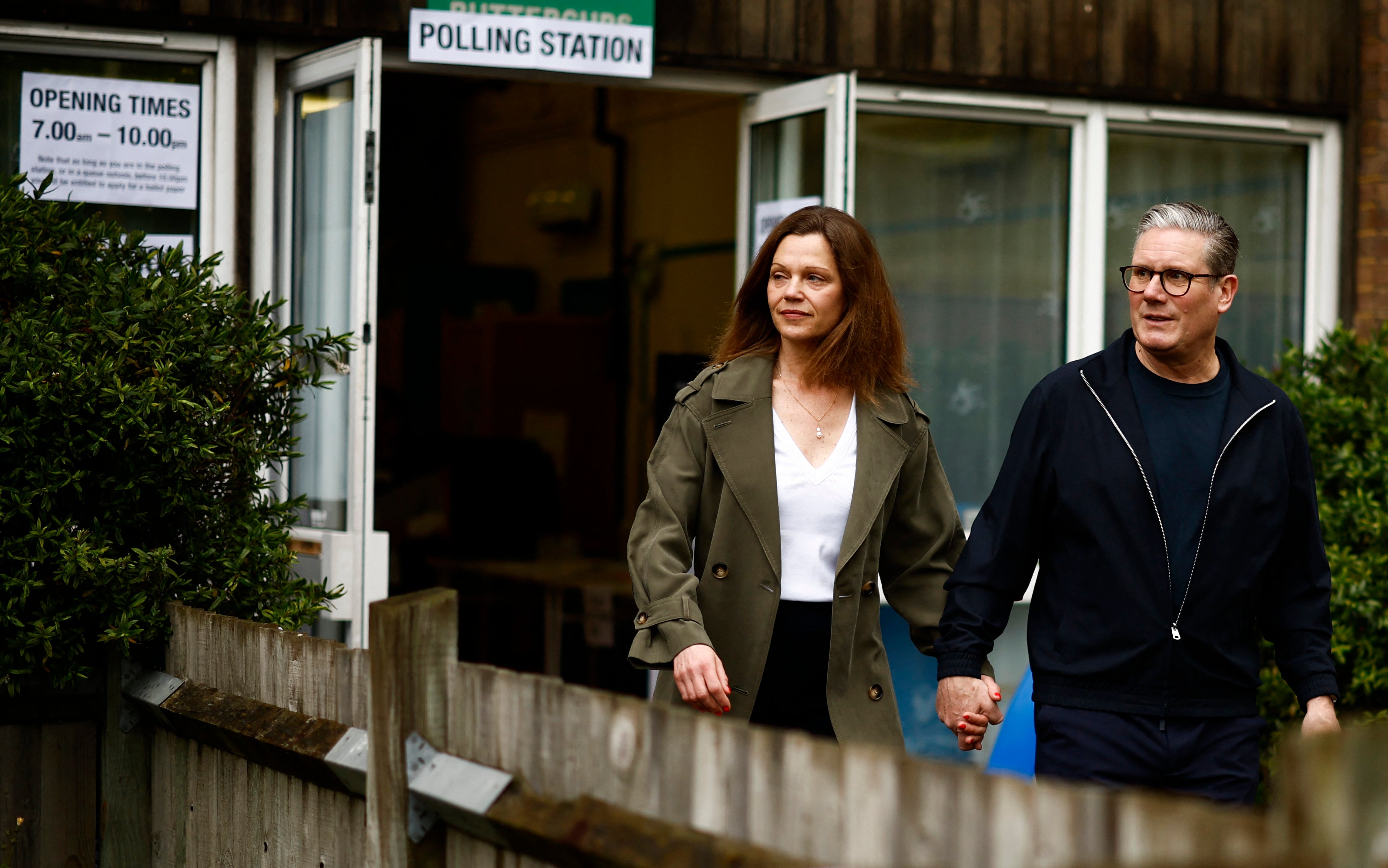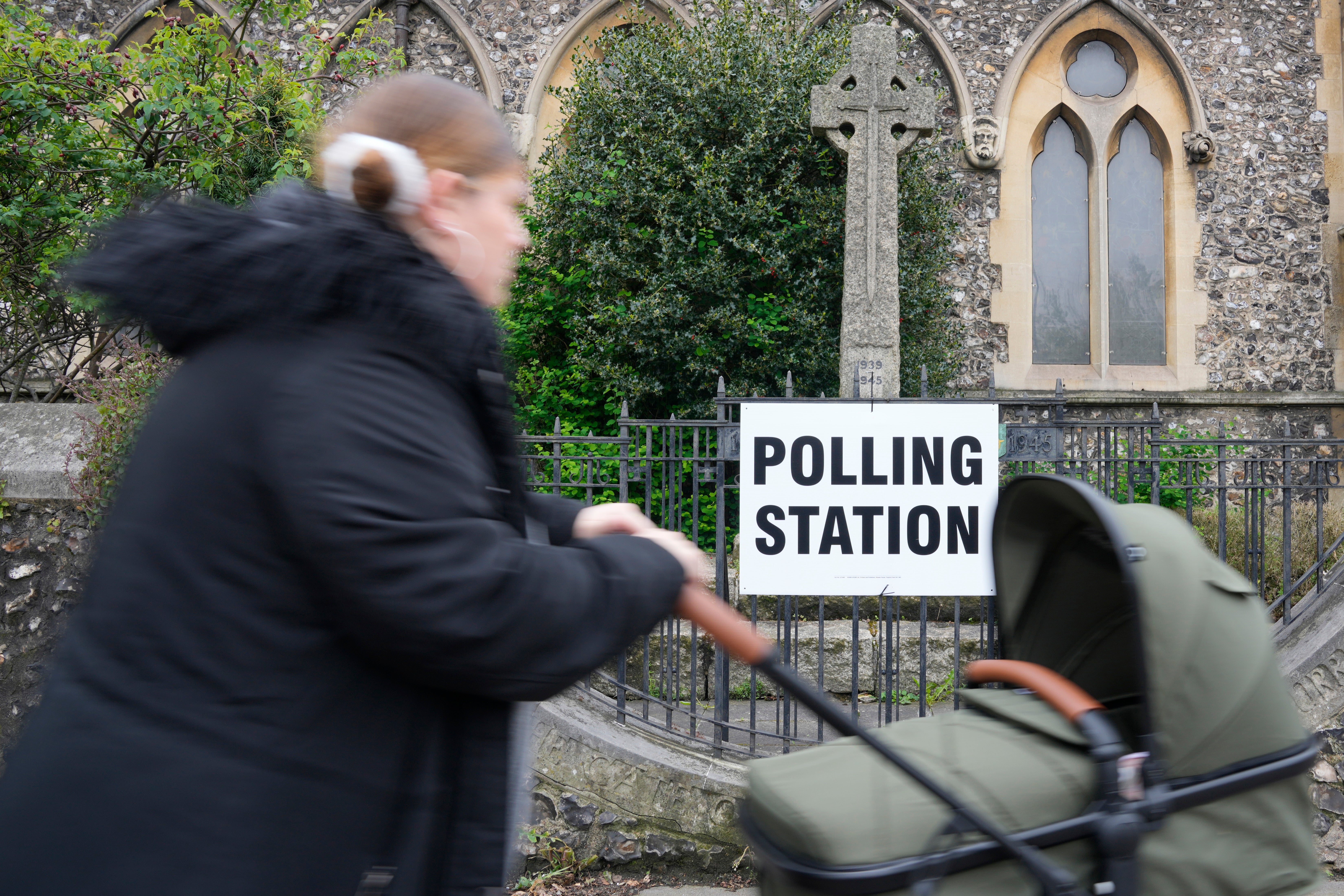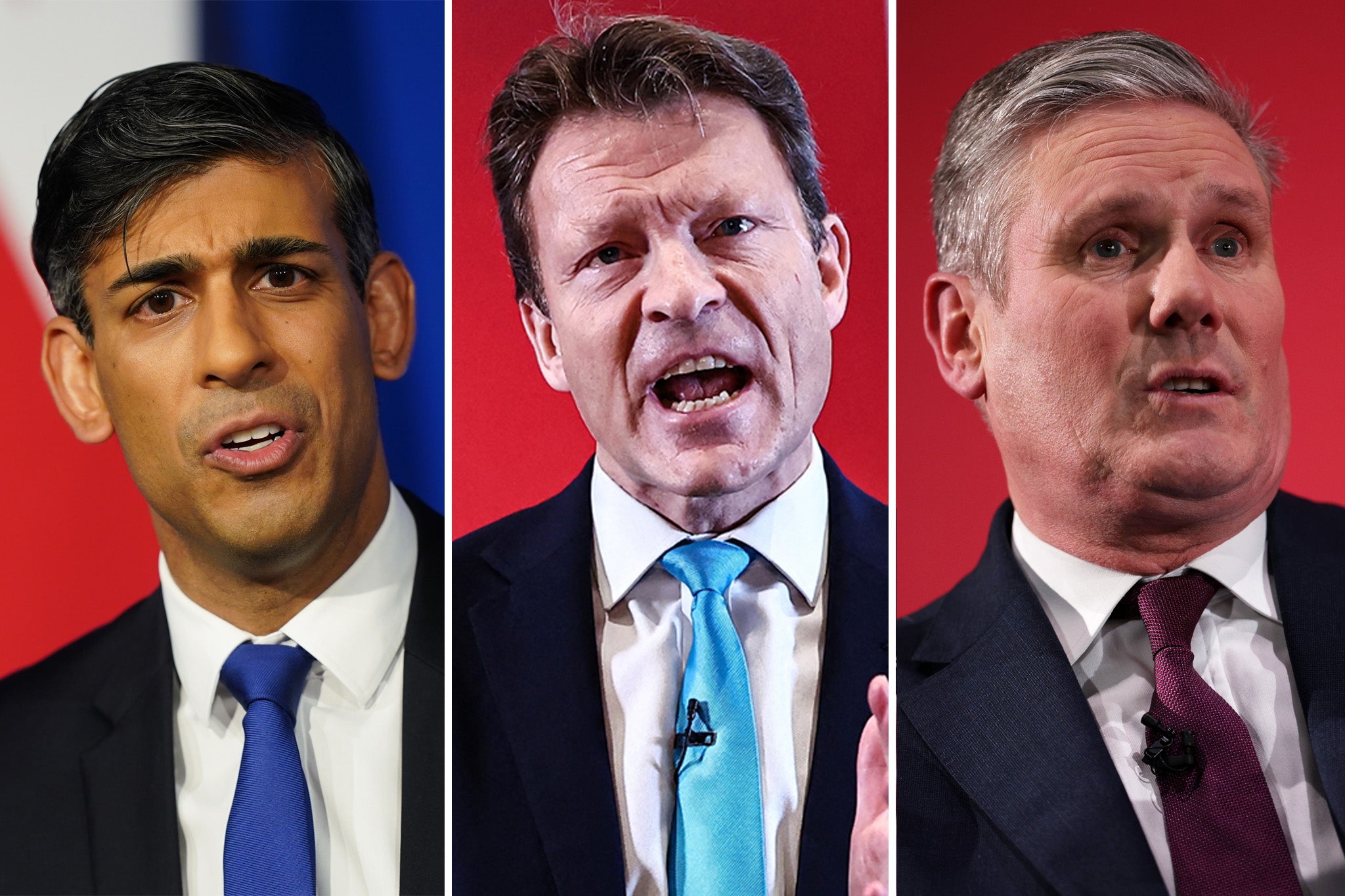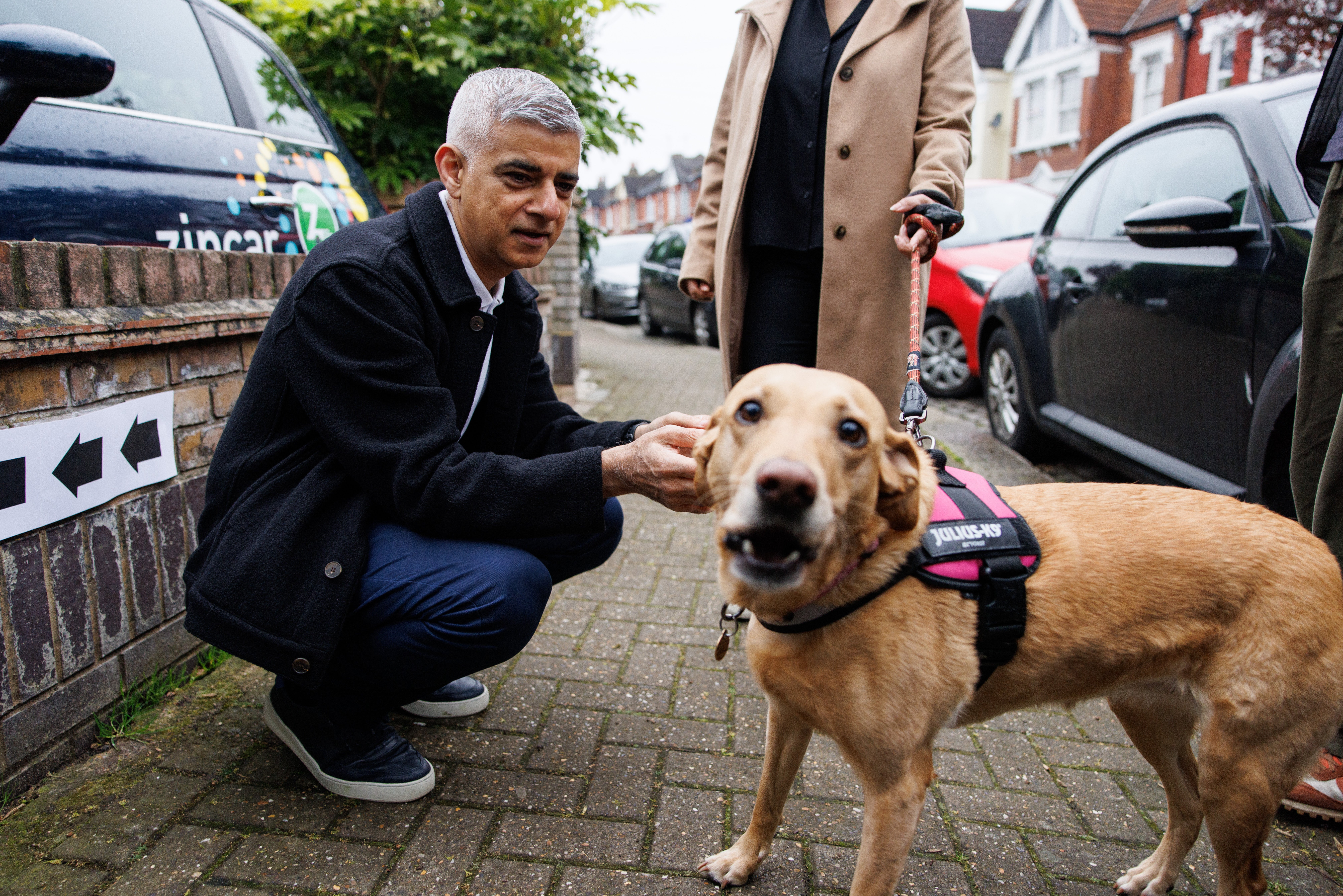Local election results 2024: Key wins and losses across the country
Sir Keir Starmer’s Labour grapples three local authorities from Tories with 72 councils yet to declare
With almost all councils having declared a result, it seems the Conservative Party has faced its worst local election performance in 40 years.
So far, 106 out of 107 councils have declared a result, with Labour grappling four authorities from the Conservatives and an overall increase of 185 councillors – as well as declaring a crushing victory in the Blackpool South by-election.
Follow our local elections live blog here
The Conservatives have so far lost 473 councillors across the country, while the Lib Dems managed to secure 104 more – key results in mayoral elections also saw encouraging results for Labour.
So what are the key wins and losses across the country? The Independent takes a look below.
Basildon
The Conservatives fared particularly badly in Essex at this set of local elections – a part of England that will be another key battleground at the general election.
In Basildon the party saw its number of councillors fall by 13, with Labour up nine and Independents up four, while in Castle Point they were wiped out entirely, losing every seat they were contesting.
Some 13 Conservative candidates failed to appear on ballot papers in Castle Point because of problems with nominations – an issue that has contributed to the new council consisting solely of 39 Independents.
Hartlepool
Three years ago, Sir Keir Starmer is reported to have considered resigning as party leader after Labour lost the Hartlepool parliamentary by-election to the Tories in a humiliating defeat, having previously held the seat since it was created in 1974.
But this year Hartlepool gave Labour cause for celebration, as it won control of the council for the first time since 2019 thanks to a net gain of seven seats, while the Tories lost six.

West Midlands
Andy Street - who has served two terms as mayor since 2017 - lost the West Midlands mayoralty in a shock defeat for the Conservatives.
Tory candidate Mr Street had hoped to cling on in the West Midlands, but was narrowly defeated in an upset by his Labour rival Richard Parker, party sources said.
Mr Street’s loss may have an impact on the Prime Minister’s defence against backbench Tory challenges to his authority.
As West Midlands mayor, Mr Parker will represent an area covering Wolverhampton, Birmingham, Coventry, and other boroughs across the region.
Harlow
Both Keir Starmer and his deputy Angela Rayner toured the Essex town of Harlow 24 hours before the polls opened, in a symbolic visit to a part of the country that will be a key battleground at the general election.
But while Labour did make progress in Harlow in Thursday’s council elections, it fell short of an overall majority by the narrowest of margins, ending up with 16 seats, just one behind the Tories on 17.
Nuneaton
There has been a complete change in Nuneaton & Bedworth in Warwickshire, with Labour up 15 seats and the Conservatives down 11, enough for Labour to take control of the council for the first time since 2018.
Oldham
A backlash over Labour’s stance on Gaza also saw the party lose Oldham Council, with independent candidates – several of whom explicitly campaigned in support of Palestine – gaining five seats to push the council into no overall control.
Labour’s national campaign co-ordinator Pat McFadden acknowledged the crisis in Gaza had been “a factor in some places” – but he added that “very local factors” had also played a role in Oldham, while council leader Arooj Shah blamed “13 years of austerity” and a “divisive toxic politics”.
Rushmoor
There was better news for Labour deep in the so-called “blue wall” of the traditional Conservative heartland of Hampshire.

The party gained seven seats and a majority on Rushmoor council, an area that includes the army town of Aldershot, while the Tories lost eight seats and overall control.
Redditch
Labour will be pleased with its performance in the Worcestershire council of Redditch - another important battleground at the general election - where the party picked up nine seats and overall control, while the Conservatives saw their tally drop by 11.
South Tyneside
It was a less cheery picture for Labour in South Tyneside, where the party suffered a net loss of 10 seats.
Independent candidates gained nine seats and the Greens gained two, while the Tories lost their only councillor, in what could be a reflection of anger over Labour’s position on Israel’s war in Gaza, or dissatisfaction with local issues, not least a long-running local bin collection strike.
Labour still has a majority here, but only just: the new council will have 28 Labour councillors, 15 Independents and 11 Greens.

Sunderland
The Reform Party had a full or near-full slate of candidates in only a handful of councils holding elections this year and Sunderland was one of a few places where it fought every seat.
While the party did not win any of them, it did beat the Conservatives into third place in 16 of the 25 seats up for grabs. Labour made a net gain of six to increase its comfortable majority.
Tees Valley
The Tees Valley mayoral race was one potentially imperilling Rishi Sunak’s premiership. But despite Labour gains, Tory favourite Ben Houchen comfortably retained the mayoralty, even clinging on in Hartlepool, where Labour simultaneously took control of the council.
In his acceptance speech, however, Mr Houchen – whose rivals claimed had run as a “quasi-independent” – thanked voters for “backing my plan”, and said pointedly that, “to be frank it doesn’t matter to me” whether he worked with Rishi Sunak or Sir Keir Starmer as prime minister.
Thurrock
This Essex council was another one of Labour’s top targets in a key Conservative-Labour election battleground.
The party needed to gain six seats to take control of Thurrock, which has been run by the Tories for the past few years during a period of turbulence that saw the council declared effectively bankrupt in December 2022.
Labour ended up making a net gain of eight seats, enough for a clear majority, with Independents picking up two and the Tories suffering a net loss of 10.

Police and crime commissioners
Labour won three of the eight police and crime commissioner elections declared on Saturday, gaining Cheshire from the Conservatives and holding West Midlands and Merseyside.
The Conservatives held Hertfordshire and Dorset comfortably, and had narrow wins in Warwickshire by just 306 votes, 0.26%, Thames Valley by 2,343 (0.52%) and Wiltshire by 2,233 votes (1.79%).
Labour gained nine PCCs from the Conservatives on Friday, as well as holding five.
The party now has 17 PCCs, the same as the Conservatives, with Plaid Cymru retaining Dyfed-Powys.
There are two results to be declared on Sunday, in Kent and Sussex.
These elections get much less attention than those for mayors, councils and the London Assembly – but could be significant as they include many of the shires that traditionally lean towards the Conservatives.
Additional reporting by PA
Join our commenting forum
Join thought-provoking conversations, follow other Independent readers and see their replies
Comments
Bookmark popover
Removed from bookmarks